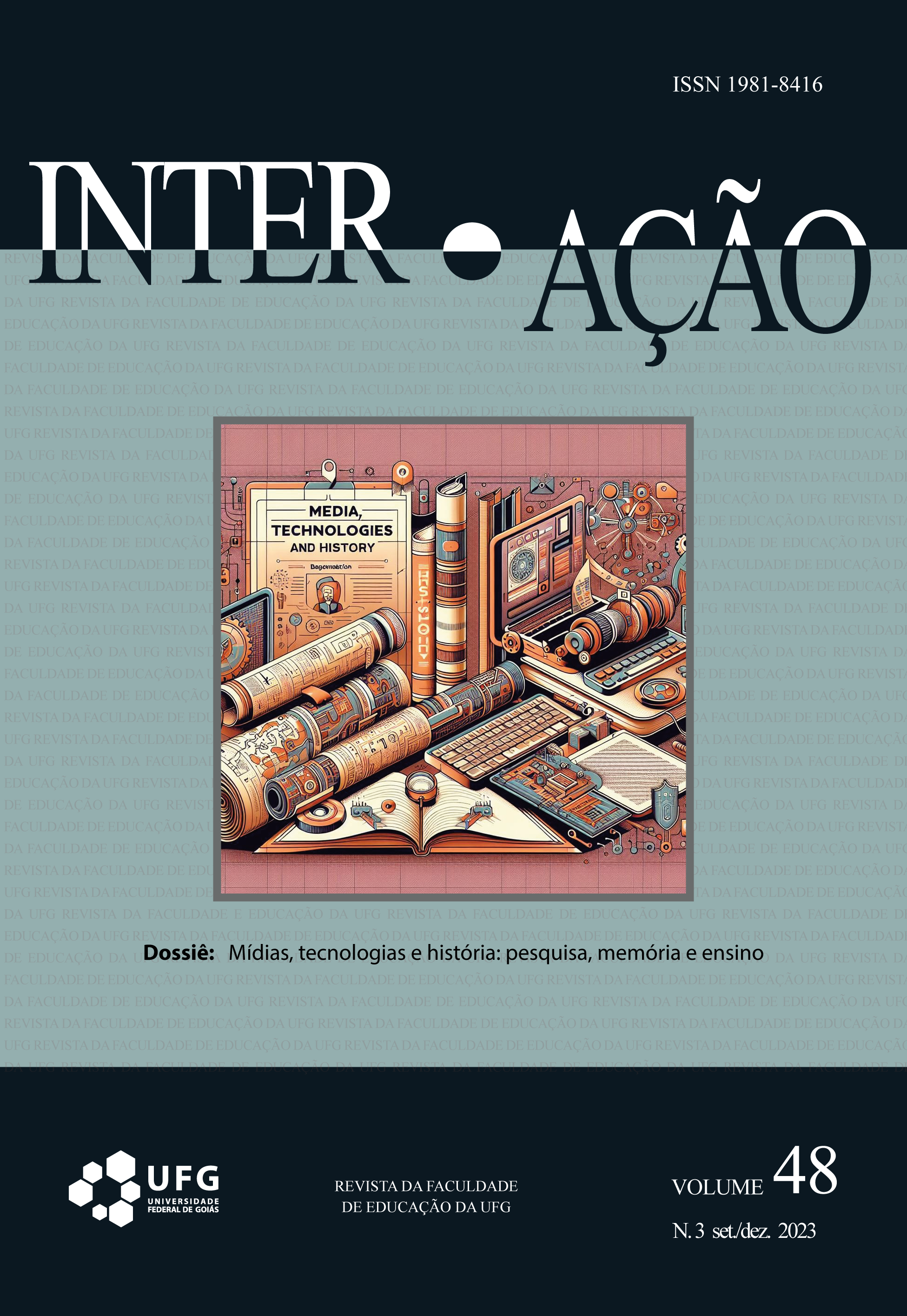INVESTIGANDO MOVIMENTOS SOCIAIS CONTEMPORÂNEOS COM FERRAMENTAS DIGITAIS: UM GUIA PRÁTICO DE PESQUISA
DOI:
https://doi.org/10.5216/ia.v48i3.75770Resumo
Este artigo propõe um guia prático para pesquisas sobre mobilizações políticas e movimentos sociais contemporâneos utilizando ferramentas digitais. Ele destaca a relevância do uso do digital em meio às complexas dinâmicas dos ativismos no período recente, assim como o potencial das Humanidades Digitais – um campo de estudos que une as disciplinas das humanidades e ciências sociais com a tecnologia digital – para aprofundar estas investigações. Para isso, apresenta um guia dividido em seis passos, que vão desde a definição do problema até a interpretação e comunicação dos resultados, valendo-se de variadas ferramentas e softwares. Com esse material, pretende-se auxiliar pesquisadores e contribuir para um avanço na compreensão das mobilizações sociais contemporâneas.
PALAVRAS-CHAVE: Movimentos Sociais; Humanidades Digitais; Análise de Dados; Guia de Pesquisa.
Downloads
Referências
BENGFORT, Benjamin; BILBRO, Rebecca; OJEDA, Tony. Applied text analysis with Python: Enabling language-aware data products with machine learning. Sebastopol: O'Reilly Media, Inc., 2018.
BORGATTI, Stephen P.; EVERETT, Martin G.; JOHNSON, Jeffrey C. Analyzing social networks. Los Angeles: Sage, 2018.
FREELON, D.; MCILWAIN, C.; CLARK, M. (2018). Quantifying the power and consequences of social media protest. New Media & Society, Chicago, v. 20, n. 3, 990–1011. https://doi.org/10.1177/1461444816676646. Acesso em: 25 nov. 2023.
HEMMATIAN, Fatemeh; SOHRABI, Mohammad Karim. A survey on classification techniques for opinion mining and sentiment analysis. Artificial intelligence review, Chicago, v. 52, n. 3, p. 1495-1545, 2019. Disponível em: https://link.springer.com/journal/10462/volumes-and-issues/52-3. Acesso em: 25 nov. 2023.
MAHALUÇA, F. Noções de amostragem. Estatística Aplicada. Maputo: Researchgate, 2016.
MAHESHWARI, Anil. Data analytics made accessible. Seattle: Amazon Digital Services, 2014.
MCCANDLESS, David; MCCANDLESS, David. The visual miscellaneum: a colorful guide to the world's most consequential trivia. New York: Harper Design, 2012.
MCKINNEY, Wes. Python for Data Analysis. Sebastopol: O'Reilly Media, Inc., 2022.
MEHMOOD, Asad; PALLI, Abdul S.; KHAN, M. N. A. A study of sentiment and trend analysis techniques for social media content. International Journal of Modern Education and Computer Science, New York, v. 6, n. 12, p. 47, 2014. Disponível em: https://www.mecs-press.org/ijmecs/ijmecs-v6-n12/v6n12-7.html. Acesso em: 25 nov. 2023.
MITCHELL, Ryan. Web scraping with Python: Collecting more data from the modern web. Sebastopol: O'Reilly Media, Inc., 2018.
RUSSELL, Matthew A. Mining the social web: data mining Facebook, Twitter, LinkedIn, Google+, GitHub, and more. Sebastopol: O'Reilly Media, Inc., 2013.
SWEIGART, Al. Automate the boring stuff with Python: practical programming for total beginners. San Francisco: No Starch Press, 2019.
VAN ROSSUM, Guido et al. Python Programming Language. In: USENIX annual technical conference. 2007. p. 1-36.
VANDERPLAS, Jake. Python data science handbook: Essential tools for working with data. Sebastopol: O'Reilly Media, Inc., 2016.
WRISLEY, David et al. Visualization and the Digital Humanities: Moving Toward Stronger Collaborations. IEEE Computer Graphics and Applications, Sebastopol, v. 38, n. 6, p. 26-38, 2018. Disponível em: https://dblp.org/db/journals/cga/cga38.html. Acesso em: 25 nov. 2023.
Publicado
Como Citar
Edição
Seção
Licença
Copyright (c) 2023 Mariana Affonso Penna

Este trabalho está licenciado sob uma licença Creative Commons Attribution-NonCommercial 4.0 International License.
A Inter-Ação utiliza como base para transferência de direitos a licença Creative Commons Attribution 4.0 para periódicos de acesso aberto (Open Archives Iniciative - OAI). Por acesso aberto entende-se a disponibilização gratuita na Internet, para que os usuários possam ler, baixar, copiar, distribuir, imprimir, pesquisar ou referenciar o texto integral dos documentos, processá-los para indexação, utilizá-los como dados de entrada de programas para softwares, ou usá-los para qualquer outro propósito legal, sem barreira financeira, legal ou técnica.
Autores que publicam neste periódico concordam com os seguintes termos:
1) Autores mantém os direitos autorais e concedem à revista o direito de primeira publicação, com o trabalho simultaneamente licenciado sob a Licença Creative Commons Attribution que permite o compartilhamento do trabalho com reconhecimento da autoria e publicação inicial nesta revista.
2) Autores têm autorização para assumir contratos adicionais separadamente, para distribuição não-exclusiva da versão do trabalho publicada nesta revista (ex.: publicar em repositório institucional ou como capítulo de livro), com reconhecimento de autoria e publicação inicial nesta revista.
3) Autores têm permissão e são estimulados a publicar e distribuir seu trabalho online (ex.: em repositórios institucionais ou na sua página pessoal) a qualquer ponto antes ou durante o processo editorial, já que isso pode gerar alterações produtivas, bem como aumentar o impacto e a citação do trabalho publicado.















